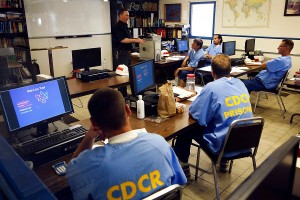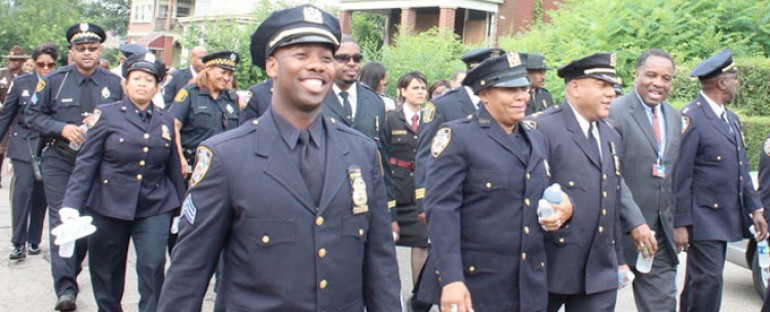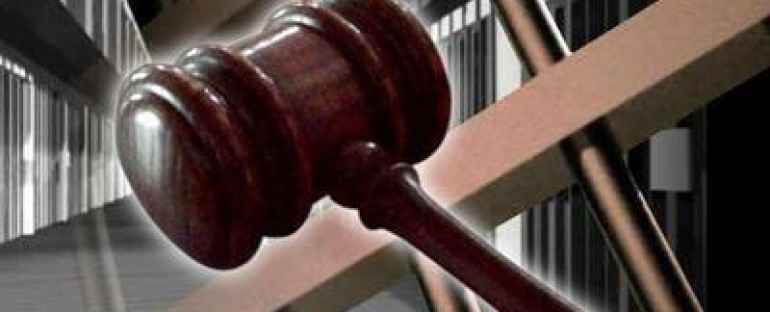


J. R. Woodgates
Tag Archives: James Russell Woodgates
After 20 years and countless reforms at one of America’s worst prisons, Burl Cain is now facing criminal charges of his own. But his legacy is a godly one.
If the United States released all drug offenders from federal and state prisons, the country would still have the highest per capita incarceration rate in the world — by a significant margin.
Changes are likely coming soon to the laws governing sentencing and mandatory minimums. But how many current and future prisoners will actually be affected?
 The Obama Administration will soon announce the return of Pell Grants for federal prisoners. Those with fewer than five years left on their time will be able to pay for classes taught by accredited colleges.
The Obama Administration will soon announce the return of Pell Grants for federal prisoners. Those with fewer than five years left on their time will be able to pay for classes taught by accredited colleges.
Here’s what a professor of philosophy and religious studies at Maryland’s Goucher College has discovered teaching prisoner’s about the Bible:
Almost murdered by his mom, left permanently disfigured, with his dad in prison, Demetrius Guyton ended up in prison, himself. That’s where a Christian inmate shared God’s Word with Demetrius, leading to a life-changing encounter with God.
Watch this former head-busting drug slinger tell how receiving unexpected fierce love from a few Christians brought him to repentance…and a new sense of purpose. Then he entered California’s state prison system. Although he never read Daily Light on the Prisoner’s Path, his amazing ministry to fellow inmates modeled what readers of my book can also do.
John Oliver says, while NOT significantly deterring crime, they ruin the lives of those who receive them…while infrequent presidential and gubernatorial pardons only enhance the agony of those who must remain locked up. (Topic begins at 2:13) (Obscene language advisory)
We know without doubt that the vast majority of innocent defendants who are convicted of crimes are never identified and cleared.
Most prisoners are guilty. What about the innocent who deserve a break?
It was two-and-a-half years between the one time I was interviewed by the FBI in late 2002 about my Internet activities at work and when I received notification from my lawyer that I would face a single charge for possession of child pornography. It was another year after that before I actually stood before a federal judge in Washington, DC and pled guilty to that charge.
Unbeknownst to anyone but a few prayer partners, clergy and family, I had spent those three-and-a-half years going through a rigorous process of church discipline, clinical examination and personal restoration. By the time I stood before the judge, I was a different man from the one who had been engaging in such disordered behavior in 2002. Nevertheless, he convicted me of my crime.
In the fall of 2006, just as I began a nine-month stay in a federal low security correctional institution in North Carolina, I divulged my situation in the parish magazine of my large suburban Episcopal church.* I was overwhelmed by the loving response it elicited. Six months later, I followed up that article with an epistle from prison.
Read both articles now to gain a better understanding of my full story…and the discoveries that inspired me to write Daily Light on the Prisoner’s Path:
* In 2009, having left The Episcopal Church, it became a founding parish of the Anglican Church in North America.
Black defendants are 15% more likely than white defendants to be imprisoned for misdemeanor offenses and drug offenses, and 14% more likely than their white counterparts to be imprisoned for felony drug offenses, according to a July 2014 study.
New York City’s police chief says so many young blacks have arrest records, it’s hard to find qualified recruits for the NYPD. Others fault the chief’s own stop-and-frisk procedures that criminalized harmless behavior:
Judge Bennett [considered] the weight of 10 years: one more nonviolent offender packed into an overcrowded prison; another $300,000 in government money spent. ‘I would have given him a year in rehab if I could,’ he told his assistant. ‘How does 10 years make anything better? What good are we doing?’
Nearly half of all federal prisoners are nonviolent drug offenders. Many federal judges who sentence them feel coerced by the congressionally mandated sentencing laws that lock away so many men and women.
This is a long read about one Iowa judge but it’s worth your time:





